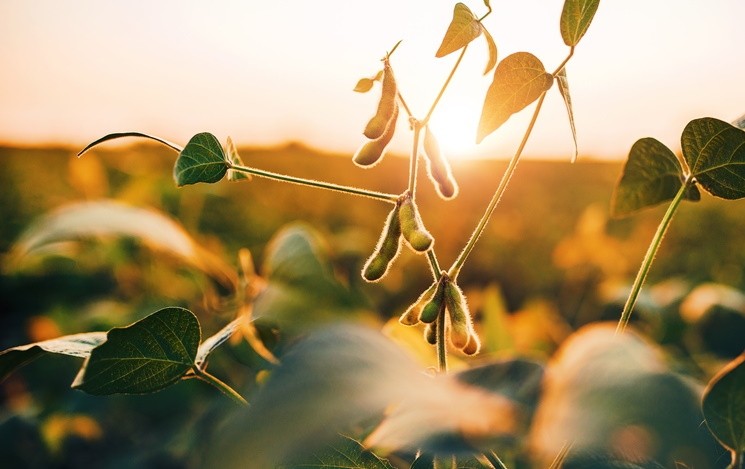UK ‘centre of excellence’ targets food security and climate resilience: 'This is the most critical issue facing the world today'

Yields of major staple foods like grains, fruits and vegetables are expected to decrease by between 3% and 10% per degree of global warming. With global temperatures soaring year on year, it is hoped the work of the new Norwich Institute for Sustainable Development (NISD) can help to mitigate this food security risk.
The NISD, launched yesterday (1 February), will focus on developing solutions that enable farmers from around the world to build resilience to variability in rainfall, periods of drought and more extreme and unpredictable weather events.
“This is the most critical issue facing the world today. If we don’t act now crop yields will continue to reduce and become more unreliable over time,” NISD director Professor Nitya Rao said.
“People in the UK and across the world could soon see everyday foods like bread, cereals and tomatoes becoming more scarce and more expensive. This will affect those who are most vulnerable who may be unable to access adequate, nutritious and affordable food for themselves and their families.”
The institute is initially working on projects that range from ‘making grass pea less toxic’ for human consumption, to forecasting climate with a solution ‘tailored to the situation of crops that smallholder farmers rely on’, and ‘high(er) tech but affordable ways to maintain seed quality, Professor Rao told FoodNavigator.
Other work will focus on designing legumes that are ‘higher in protein and better nutritionally for people’ and understanding how ag tech is shared and related ‘equity and inclusion issues’.
NISD is a cross-disciplinary research facility that will bring together seed science expertise and input from the social sciences from UEA’s School of International Development.
The new institute is based at Norwich Research Park and also involves researchers from the Quadram Institute, Earlham Institute and The Sainsbury Laboratory.
Integrating natural and social sciences
The interdisciplinary nature of the institute is an important differentiator, Professor Rao told this publication.
While agricultural sciences have made significant advances, supporting farmer uptake means that the social, economic and political context that farmers are operating in must be considered. “The choices they make and technologies they use are part of a complex balance of technical and social factors,” the UEA gender and development expert explained.
“There has been considerable progress in crop sciences over the last 50 years, with technologies now available for dealing with pests, diseases, climate stressors include water scarcity, amongst others, while still ensuring high yields. Yet many of these technologies have been unable to make a significant impact on farmers’ lives and livelihoods in the global South, at times, because of lack of information or misinformation, but more importantly due to differences in priorities of peoples across contexts,” Professor Rao elaborated.
According to Professor Rao, lessons on farmer participation in future ag tech innovation can be learnt from history. For instance, she continued, the Green Revolution in India in the late 1960s saw scientific breakthroughs in high yielding varieties of wheat that ‘changed the farming landscape’ due to widespread adoption by North Indian farmers. This was facilitated both by on-farm demonstrations and public policy support that ‘ensured procurement at remunerative prices to protect them from risk’.
“Yet despite these favourable support factors, not all varieties were equally accepted – farmers prioritised colour and taste of the grain to be retained for household consumption, but also the need for straw which the high-yielding dwarf wheat varieties lacked.
“Social sciences here bring in methods and approaches to uncover social heterogeneity and difference in terms of access to resources including labour, household priorities, attitudes towards risk, consumption preferences, and a host of others. A systematic social analysis can then provide insights into the factors that mediate acceptance of particular technologies.”
Understanding this deeper context will help inform the development of solutions that meet the needs of farming communities in a more holistic way, it is hoped.
“Since the greatest problems are transdisciplinary in nature, so must be the thinking that creates the best solutions. Plant and social sciences are just two groups that we will bring together to understand where new technologies are appropriate to a context and to ensure they are designed bespoke to the social needs of the communities, especially women farmers and small and marginal landholders.
“This means crops that not only give dependable yields despite climate change, but those that also provide locally valued traits, are accessible to diverse social groups and have minimal impact on biodiversity. Solutions such as these are unlikely except by integrating natural and social sciences.”
Placing the farmer at the heart of innovation
This approach means that the needs of farmers and farming communities become central to the development process.
As such, NISD has a range of research and engagement projects supporting its work. “We have a long history of engagement with farmers in our development research with our core team and research partners more broadly, many of which elicit farmers perceptions and understandings, needs and context as a core part of the work, even before research projects are designed and developed,” the academic elaborated.
There is something of a balancing act between responding to current needs and longer-term objectives, such as developing crop breeds that have better nutritional qualities or are better suited for the changing conditions that will be faced due to climate change, Professor Rao noted.
Nevertheless, she stressed: “All of these programmes have been developed and devised following needs that have been expressed by farmers and agricultural communities. For the crop breeding programmes, we are further engaging and testing uptake with the farmers once new varieties have been created.”







